|
Did you know that friendships have an average shelf life of 7 years? The ones that last longer are the deeper friendships that are truly nourishing and good. They are worth your investment, because the joy, fun, trust, encouragement and support outweigh the irritations, the upset, the clashes (which are normal). Even if you rarely actually see each other! Cool.
But what about the friendships – and we’ve all had them – where the bad outweighs the good?? Like Habit Friends? We all have had that friend who we know since school/college/that job that we are really not that intimate with anymore, maybe ever. You can tell the ‘habit friend’ by the sad feeling you don’t get when they cancel. Or the persisting feeling of duty or obligation when it comes to contacting them, the absence of joy or connection. Or worse, resentment for taking up your time (which you give them…just sayin’). Maybe your kids are friends, you attend the same gym, whatever. But: do you want these people in your life? You have a choice. (Yes you do!) OR maybe you have Me-Me friends. These are the ones that make it about them in times of (your) stress: “OMG! I have the Exact.Same.Problem!!”. Or whip up drama even more if you’re in difficulty. You may familiar with the”Oh my GOD! I know someone who had that EXACT pain and it turned out to be cancer – they were RIDDLED!!”. You know the ones right??… oh dear… OR what if they’re Sticky Chi friends (a phrase borrowed from a Martial Arts guy, Chi being a word for ‘energy’). These are the ones that make you feel spent. You can tell your friend has sticky chi if you feel exhausted at the very thought of meeting them, or find yourself zapped when you’ve left them despite buzzing like a kitten on coca-cola before you met up! Your body is telling something – ignore at your peril! OR at worst, they’re Abusive ‘friends’. We use the term ‘friend’ here verrrry loosely. These are the ones that actively offend you either explicitly: “Jeeez, I don’t know if you should go for that job. You’re not bright enough, seriously”. Or, more commonly, implicitly: “Jeez, are you really going for that job? Wow! Hmmm.. surprising! Ok, well good luck I guess…Don’t worry if it doesn’t work out though”. Ugh. One of the biggest problems with toxic friendships is that while we are pouring our limited energy into these bottomless pits, it is near impossible to be open to the possibilities of creating more meaningful relationships with other people. What can you do if you suspect that you may have a toxic friendship?First, start by asking yourself some tough questions – and REALLY think about the answers:
We all have a limited amount of emotional energy. Looking at our ‘circles’, obviously we want the people on the closer, inner circles to get the most of our available energy.
Circles of Friends
What does your Circles of Friendship look like? What would you change if you could? Who would be closer, who would be farther, and who might not even find a placement? It’s OK to end a friendship. It really is. Take time to heal , assess and learn from what happened. It doesn’t mean you’re a bad person, it doesn’t even mean they are! Choosing who you spend time with is one way to practice self-worth.
De-cluttering the people wardrobe
These chicks have learned – through trial, error and ample doses of pain – that letting go of friends (or being let go) can end up being the best way ever to make new friends. Oftentimes, better friends.
Choosing friends, minding you.
0 Comments
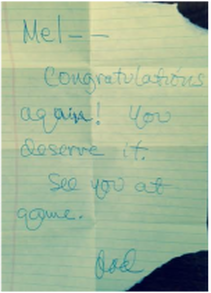
I was 16 years old when my father died from cancer. Getting through the experience was one of the hardest things I have ever done in my life and looking back, I'm amazed at not only my own resilience, but also of the resilience of my entire family. I know first hand what it is like to experience loss and would like to provide some suggestions on what helped me over the years.
When my father became ill, I was extremely fortunate to have a good friend who unfortunately, had just lost her own mother. She provided me with the single best piece of advice of which I am eternally grateful. She told me to spend as much time with him as possible and to say everything I wanted to say because once he's gone, regret over what I should have said or done would be unbearable. Because of my friend's advice, that is what I did and I cherish the last weeks with my father more than any others. However, not everyone has the opportunity to do this as death can sometimes come on too quickly and without warning. All we can do is appreciate the time we did have together, rather than focus on what we missed. That being easier said than done, if you find yourself dwelling on what you wish you would have done or said, immediately catch yourself and turn your focus to the positive times you had with the loved one. Pull out old pictures or notes to remind yourself. Start a journal of appreciation that is for the sole purpose of expressing gratitude for the good times. If good times are hard to recall, then write about the good things you learned from the relationship or from the death. Something else that has been helpful for me over the years is to always take time to reflect on my father's life and our relationship. Sometimes this occurs without warning when I'm reminded of him for some reason. Other times, I plan it and take time out to reflect, like today, the anniversary of his death 22 years ago. During these reflective times, I like to look at old pictures of him or notes he snuck into my lunch bag. This was a difficult thing to do during the first few years after his death; however, it is now something that makes me smile. Take time to connect with something your loved one enjoyed, whether it was a close friend or a hobby. My father loved being outdoors engaged in activities like skiing, fishing, and photography. He was also a wonderful writer and practical jokester. In my family, each one of us has identified with one of his passions and maintained it on a personal level. One sister continues to write, another is an avid skier, and another is a talented photographer. My mom has held onto his fishing rods. I feel most connected to my father through my sense of humor. Regardless of how we have remained connected to him, doing so provides peace and makes me feel that he is still a part of my life. Talk to those who knew and loved your loved one. Human beings are complex and each person in your loved one's life had a different relationship with and perception of the person. Connecting with others allows us to see and appreciate the other parts of the person that we may never have known. My father was my parent so I only knew him in a certain way, but when I spoke with his friends and colleagues in the years after his death, I was able to learn more about him. It was also nice to reminisce with those who knew him. As an adult, I now appreciate the complexity of who he was as a person and am constantly trying to better understand him, as well as learn from his mistakes and his successes. Grief is strongest when it is fresh. It causes a hole inside us that actually physically hurts. The intensity and spectrum of emotions that you feel cannot be understood or appreciated until you have been through it. It does get easier with time, but before that occurs, it can feel as though it never will. Please reach out for help if you or someone you know is struggling with the loss of a loved one. Kids may show signs of anger, school refusal, have nightmares, or physical symptoms like frequent stomach or head aches. Adults may become withdrawn or isolate themselves. But you do not have to go through this alone. Individual therapy can be extremely helpful. Hospice organizations also offer support groups for those struggling with grief, which can be very beneficial. Contact me or a local Hospice organization for help in coping with your grief. Melanie McNally, PsyD 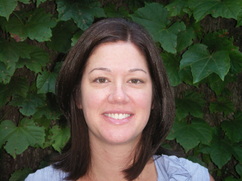
I am a Licensed Clinical Psychologist providing therapy and comprehensive psychological testing in the northwest suburbs of Chicago. I have a Master's degree in Community Counseling and a Doctorate degree in Clinical Psychology. Website: Link Twitter: @DrMelMcNally 
Medication and me: It’s been quite a rocky road for us ever since first giving meds a chance around age 14. It would be best summarized as an all or nothing relationship. I would come to the meds feeling hopeless and helpless, aka despair. Then with an open my mind and heart I’d take the medicine then sit back and wait for it to help and make me feel better. I just wanted to feel better. Who doesn’t? When that betterment didn’t come I’d give up on medication and issue a decree that I need to just suck it up and handle it myself. After all nearly no one believed I was ill. They’re statements like this- You’re too smart to be sick. I would agree with them at that point and it gave me temporary victories; temporary because I would always crash and burn at some point. This would lead me to feel helpless for most all my life. It was definitely a no-win situation. After feeling helpless and doomed to not win no matter what I tried for so long a time, I began to get swallowed up by despair. That engulfing feeling would turn to belief and take me down the path to where suicide not only became desired but wholly felt necessary. But I had so much to learn.
One lesson was to learn that if you don’t know the rules of the game it’s nearly impossible to win that game. Even worse than not knowing the game and the rules is thinking you do when you just don’t. I was twisted in both ways- not knowing all the rules but thinking I had learned them. In this case I had learned that life would be better with me gone and totally unaware that genuine help was out there. I was so wrong on both accounts. Shortly after turning 39 I looked back on my life thoroughly following the most recent of huge messes I had made that hurt others and myself. I saw clearly I had to do things differently. I saw that if I was going to get better, and I needed desperately to change, I would need determination. Not just determination but use my brain much more effectively too. Because determination on its own can be harmful. For example, pouring yourself into breaking through an unbreakable My education started by checking myself into Clarion Psychiatric Center. It was summer 2011. They did a good job of helping me, but it became clear to my staff and me that I needed more than they could give. They are a short term hospital and I needed long term help. They arranged for me to go to Warren State Hospital, where I could literally stay until I was better. Clarion brought back a desire to live and nearly 2 years at Warren showed me how to live. They showed me that I needed far more than just medication to get better. The following quote they had on a poster there echoes that: “It’s my recovery! Medication can open a door, but it takes a strong and courageous person to step over the threshold into recovery. That person is me.” When I first read that, I could not grasp all of it. I was still held down by many twisted distortions in my head and heart. But after reading it several more times it struck me to the core. What changed? Simply put, me. And that change had allowed me to see the truth in that poster where before I could not. My time at Warren made me a new man. They combined medication, individual and group therapy, 24/7 nursing care, a chapel for spiritual needs, a library, and even therapeutic recreation, all over a long term. All of that plus my best efforts changed me. I didn’t just recover, I was uncovered and discovered too. You mean all the Warren State Hospital provided wasn’t enough? You had to put in your best effort too? Yes, indeed. That was my experience. A Bible verse, Colossians 3:23, that I've known and loved for quite some time, says- Whatever you do, do it with all your heart... And now I can clearly see that to do really anything truly well one has to put their heart and genuine effort into it. But for those of us like me with mental illness we need more than just our best efforts. More than just adding medication to our best effort. More than adding therapy. We need to combine these all together to enable ourselves to be the best we can be. After all, it's OUR recovery. So let's open a door with medication and keep it open. Then be strong and courageous and step over the threshold into our recovery. From there let's take the bull by the horns and live the life that's best for us. It's so worth it!!! Mark Barkley 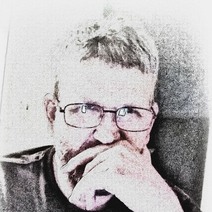
My Name is Mark Barkley. I have struggled and/or fought mental illness since childhood. I am diagnosed with and being treated for Bipolar disorder and OCD. I am 42 years old and live in northwest Pennsylvania. I write blog posts to enlighten and encourage, and enclosed here is my current favorite post.
Connect with Mark Blog- Link Twitter- @markbarkley Facebook - Link |
Build Your Action Based Stress Reduction System
Popular PodcastsOlympian Suzy Favor Hamilton - From Fame to Prostitution to Advocacy
Hall of Fame Basketball Star Chamique Holdsclaw on Mental Resilience Diana Nightingale on her husband Earl Nightingale's Principles for Mental Health Success JoAnn Buttaro on Date Rape & PTSD Survival Story: Its Never Too Late Gabe Howard on BiPolar Advocacy Phil Fulmer on Teen Suicide Prison, Bipolar and Mania with Andy Behrman Columbia Univeristy's Dr. Rynn on OCD Archives
March 2018
Categories
All
|

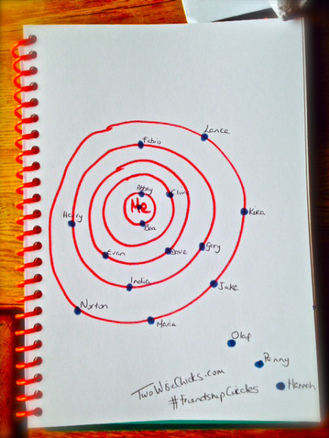
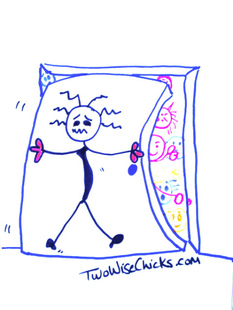
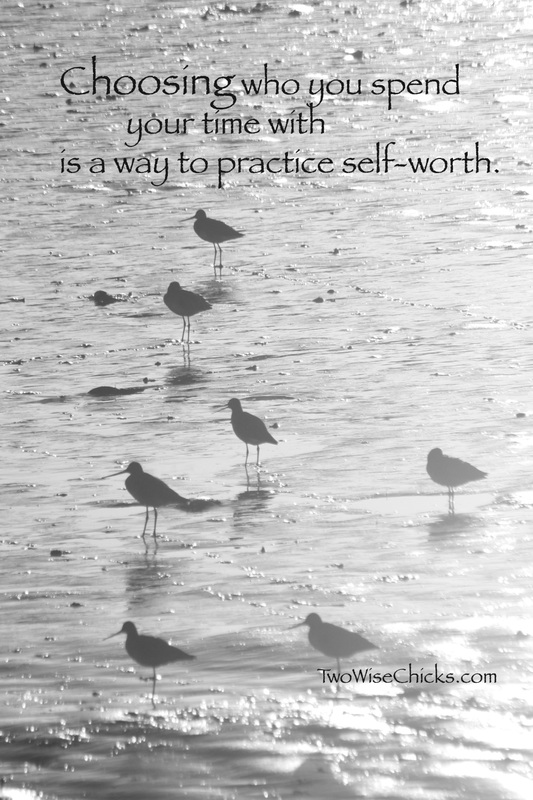
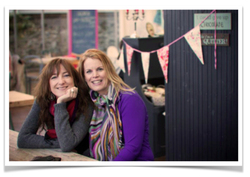

 RSS Feed
RSS Feed





